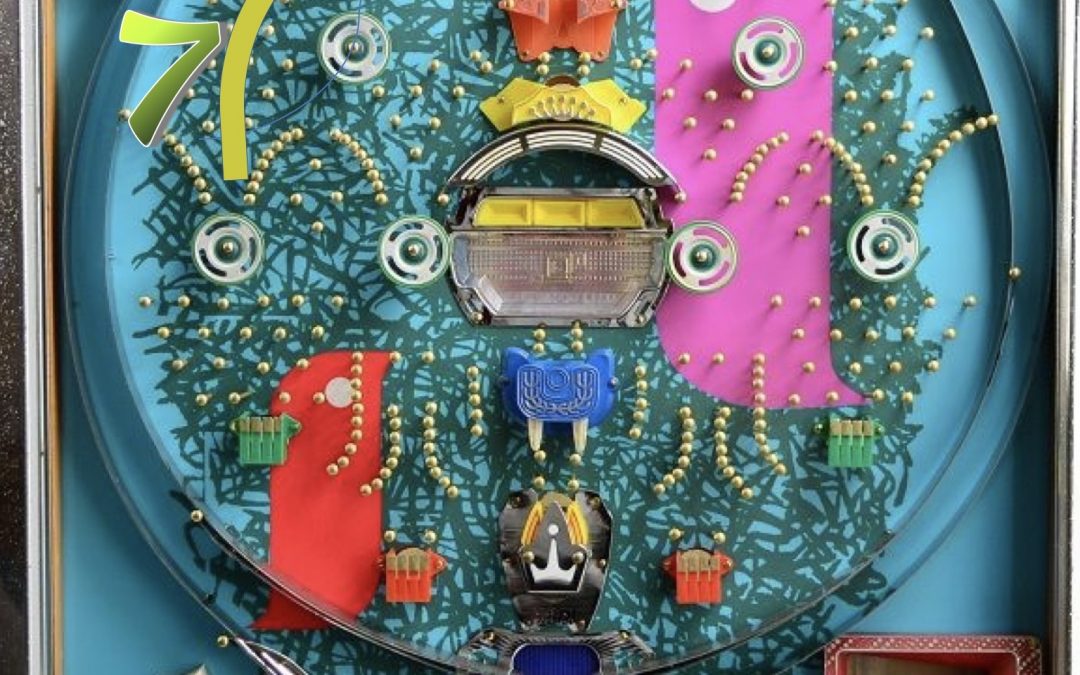As the crisis of the Coronavirus threat tests our system, it’s useful to look at the efficacy of our last “Black Swan” crisis: the response to the events of September 11th.
The look is depressing. We invaded Iraq in an effort to make them like us: the first lesson is that a crisis is channeled through the gears of a culture’s ways. China and Russia double down on the control that suits them, the democracies of Asia double down on battling the virus through social organization, Israel through besieged, no-nonsense, well-practiced efficiency. Socialists redouble their call for socialized medicine, libertarians emphasize the incompetence of central planning and mal-adaptive mistakes of top-down control.
Call these gears the slots in a Pachinko machine.
When we look just at the narrow response to the [well-studied causes][2 of 9/11], we are left with an almost wholesale failure to implement the study’s conclusions. It borders on pedantry to point out that the failures are entirely political, the political system being our culture’s Pachinko machine for channeling policy. We sprayed money on various approaches to counter terror, yet the actual problems that caused the actual failures were left mostly unsprayed.
What is the use of solemn study when action needs to be implemented by political Pachinko? This is how a logic paradox can be dismissed just by saying “politics,” like, for example, how New York City, the most likely target of terrorism, is such a low (per capita) funding priority in counter-terror funding. The same “politics” channels our response to COVID-19.
The pandemic relief bill is a similar spray of bribes and goodies for our politically connected, related to “virus” the same way budgets opened with the “Abracadabra,” “Open Sesame,”“Flippity Floppity Floop” incantations of our last magic word: “terrorism.” We will end up spending more money keeping planes empty of passengers jetting around the globe than we will on our strategic ventilator reserve (given we ever figure out what that is, who runs it, how we can get it, and what we spend on it).
What bends us so? A normal person would look at a pandemic relief bill as a response to the death, suffering and economic privation of a pandemic. Not so an American politician. These are but part of an array of concerns: like how a ball falls through a pachinko machine. The top, most important, slot is the political one: the care and reward of supporters, paymasters, and lobbyists. Relief monies go most to those with the attention of the politicians, and these people pay greatly to get into that position before and after any crisis. The effects of the reward of the well-positioned lobbyists will accelerate this corruption, because there will be more hands out, come next bending crisis-Pachinko.
Another important slot is the doing-down of their political enemy, to forestall, thwart, parry and block the other team from doing to them what they work so hard to do for themselves. Marvel at the President positioning himself politically for November with his “freedom! insurrection!” Twitter antics in the swing states that have not yet seen the deadly truth of the virus. With politics controlling everything, all decisions are subordinate to political calculus, thus the virus Pachinko.
Yet another is to create opacity, so that failures of the solution Pachinko machine can’t be traced back to them, by their political enemies, come Election Day. Reflect on how much energy the political class is putting into pinning pandemic blame on one another, and jockeying for position. Take it on the word of someone in the middle of the fight for our civilization’s life: for all of the blame and recriminations and grabs for power, I have not seen one, single, solitary effect of the Feds on what I am doing every day, on the ground level. Ground-level output is low priority for the Pachinko machine.
Expecting a Pachinko machine to behave in a straight line, like relief money going to forestall death or economic ruin, is irrational. Systems do what they are evolved to do.


Active Comment Threads
Most Commented Posts
Universal Background Checks – A Back Door to Universal Registration
COVID Mask Follies
When Everything Is Illegal…
An Anti-Vax Inflection Point?
“Not In My Name”
The Great Social Media Crackup
War Comes Through The Overton Window
The First Rule of Italian Driving
Most Active Commenters